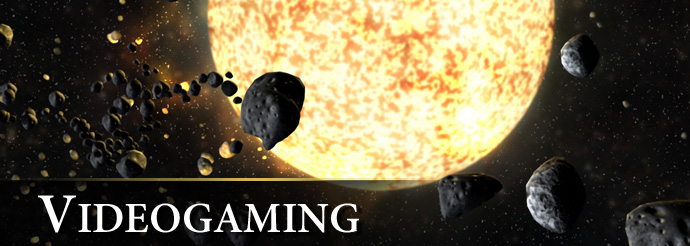
CyGaMEs Achieves Much in 2011
Positive news continued to come in 2011 for the CyGaMEs project, which investigates how to design instructional games that cause and measure learning. Once again, independent external evaluation classified the CyGaMEs project as exemplary in an independent review. Funded by the National Science Foundation, CyGaMEs investigates how to design instructional games that cause and measure learning. In 2011 close to 800 learners played the Selene videogame, which is part of the CyGaMEs project. How is CyGaMEs exemplary?
- It was selected by the National Science Foundation as an exemplary program for successful STEM education. CyGaMEs is one of approximately 35 programs from across the country that represent the characteristics of successful STEM education identified in the National Research Council report Effective K-12 STEM Education. Read more here.
- The CyGaMEs team received the "2011 Outstanding Practice" for exemplary instructional materials or systems from the Association for Educational Communications and Technology.
- The state of West Virginia science coordinator reviewed Selene and certified the game aligns with content, process and technology standards and may be used as part of instruction.
- MoonGazers is a package of virtual, game-based, and hands-on activities. Young people and adults develop MoonGazer skills through a sequence of teaching and learning opportunities: the Selene game (players age 9 and up discover and apply basic planetary geology concepts as they form the Earth's Moon and change it to replicate its 4.5 billion year history), MoonWorld (players apply those principles as they work in teams of four conducting virtual field work on the surface of a moon), and hands-on activities (prepared with new knowledge that makes Moon viewing meaningful, learners complete hands-on activities for observing the Earth's Moon within the context of the Earth, Moon, Sun system). CyGaMEs provides in-house, site-based, and web-based training for educators to implement MoonGazers. This year's partners included the National Challenger Center for Space Science Education, NASA Education, Propel Charter Schools, NASA Summer of Innovation program Ignite!. MoonGazers aligns with new K-12 framework for science education: Disciplinary core ideas: Earth and space sciences, science and engineering practices, and cross cutting concepts.
- At the invitation of the National Science Foundation, CyGaMEs principal investigator Dr. Debbie Denise Reese, (a) presented CyGaMEs research on game-based learning an assessment at the 2011 principal investigator's meeting, (b) presents as a member of the Discover Research K-12 special interest group on educational games, and (c) leads the section on knowledge specification for the New Measurements Paradigm group, preparing a white paper for publication through NSF CADRE, which roll outs at the 2012 American Educational Research Association conference in Vancouver. CyGaMEs is specific to games that modify behavior to cause and measure learning. CyGaMEs like Selene are designed to make learning more intuitive. The CyGaMEs team uses Selene to study and publish research about learning and the interplay between learning and self-perceptions like flow, anxiety, arousal, worry, apathy, boredom, routine expertise, and control.
MoonWorld
The NASA-sponsored Classroom of the Future's MoonWorld hosted almost 4,000 avatar visits. Avatars are 3-D representations of people as they move, speak, and work in a virtual world. MoonWorld avatars conduct lunar science field work in teams of four during a two-hour mission, collecting and analyzing lunar features and samples.
